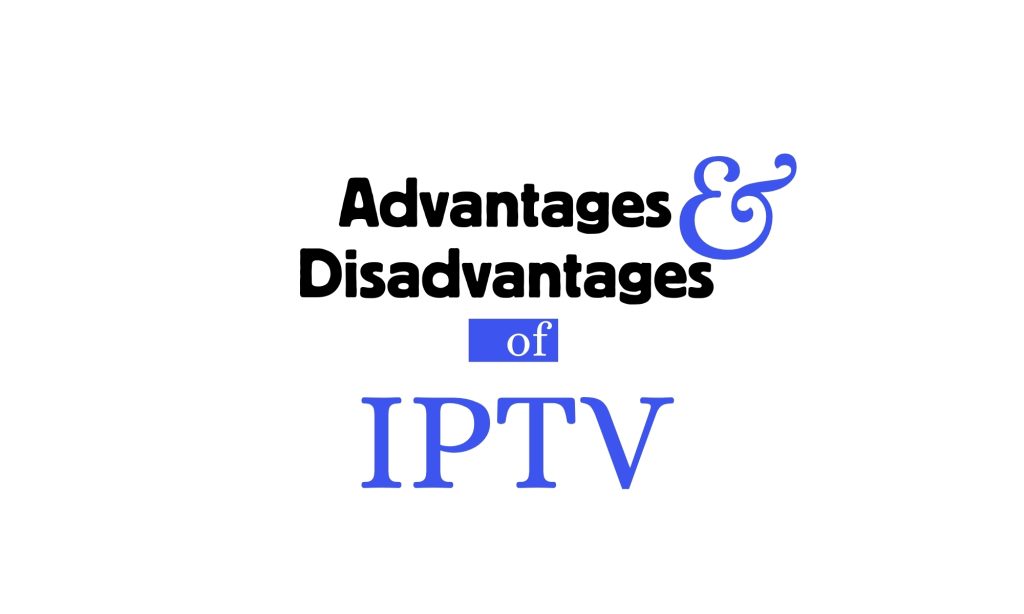
Pros and Cons of IPTV
IPTV (Internet Protocol Television) has transformed the way people consume entertainment, offering a plethora of content and features. Let’s delve into the advantages and disadvantages of IPTV to help you make an informed decision about this technology.
Introduction to IPTV
What is IPTV?
IPTV refers to the delivery of television content over the internet protocol. It provides access to various types of media content, including live TV, movies, series, and more.
How does IPTV work?
IPTV operates through the transmission of TV content over the internet, utilizing dedicated servers to deliver content to users’ devices.
Although IPTV offers incredible flexibility and user experience, there’s much more to it. The user gets an immense amount of entertainment. It’s also vital to look at both sides of the coin here, as IPTV isn’t perfect either. Here are some of the most notable pros and cons of IPTV
Pros of IPTV
- Easy to Set Up and Uses: All you need to get started is to buy a set-top box and connect it to your TV set. Also, the Wi-Fi connectivity that newer models have makes the process significantly easier.
- It Is 100% Digital: The world is becoming more digital-oriented by the day, so transitioning to digital TV is an excellent foundation for the future and new tech.
- IPTV Allows Smooth Simultaneous Streaming of Multiple Programs: IPTV services let users stream multiple programs simultaneously on different devices (TV, PC, etc.).
- Variety of Service Types: The multiple types of services IPTV offers exist to fit different consumer tastes.
- Allows Users an ad Free Experience: Many people hate advertisements, so being able to skip or fast-forward them is an excellent quality-of-life improvement.
- Incredibly Time-Efficient: Not having to wait for specific times to access your favorite broadcasts and skippable commercials is why IPTV is so appealing to users worldwide.
Cons of IPTV
- Network Overloads May Cause Technical Issues: If too many users watch a specific show simultaneously, the network may overload and cause buffering or playback issues. But in recent advancements, many such service providers are in market who have advanced systems and do not face this issue. If you face this issue on your IPTV service, you might want to upgrade your service provider.
- Users Have Little to No Control Over Channel-Related Issues: If an error occurs on a channel’s end, there’s little to nothing viewers can do to fix the issue but wait. Although, this issue is not necessarily unavoidable. There are several service providers who provide 24/7 technical support and channel issues are no more a worry for the user. To connect to such service providers, read our article Top 10 IPTV Service Providers.
- Synchronization Problems Are Commonplace: Due to natural fluctuations in network speed and quality, viewers may experience synchronization problems. If these occur, they deal a massive blow to the quality of user experience.
As you can see, IPTV isn’t omnipotent and has a few downsides to traditional TV. But since technology keeps developing rapidly, we wouldn’t be surprised if these few issues got dealt with sooner than later. Besides, the UX improvements IPTV brings to the table far outweigh these potential problems, wouldn’t you agree?
Legal Aspects of IPTV
Licensing and Copyright
IPTV services must adhere to licensing agreements and copyright laws to legally offer content to users, ensuring compliance with intellectual property rights.
Piracy and Unauthorized Access
There are concerns regarding unauthorized access to content and piracy in the realm of IPTV, emphasizing the importance of utilizing legal and authorized services.
Conclusion
FAQs for IPTV
Does IPTV require a cable or satellite dish?
- No, IPTV does not require a physical dish or cable connection. It operates over the internet.
Are there region-specific restrictions in IPTV services?
- Yes, some IPTV services might have regional content restrictions due to licensing agreements.
Can IPTV be used without an internet connection?
- No, IPTV relies on an internet connection for content delivery.
Is IPTV suitable for live sports streaming?
- Yes, many IPTV services offer live sports streaming options.
Are there parental control features in IPTV?
- Yes, several IPTV services provide parental control options to manage content access for children.
